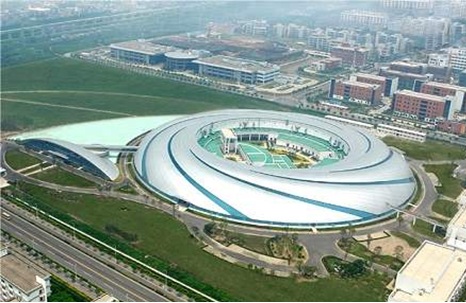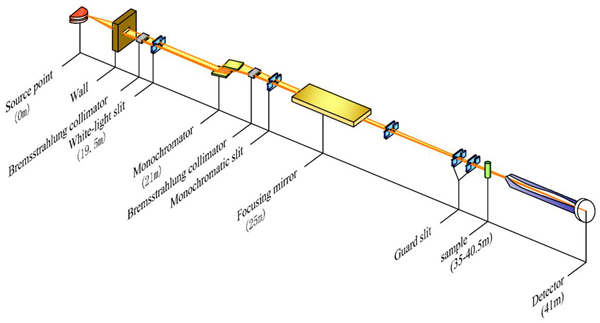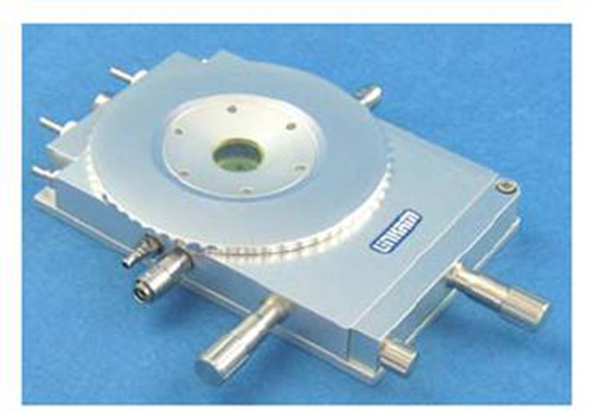BL16B1 Small Angle X-ray Scattering (SAXS) Beamline

X-ray SAXS station(BL16B1)
1.Introduction
The beamline (BL16B1) is primarily a combined small-angle and wide-angle scattering instrument. Small angle and wide angle X-ray scattering (SAXS and WAXS), when coupled with synchrotron radiation, offers research opportunities in studying the microstructure, kinetics, dynamics and rheology of complex and nanostructured materials (polymers, colloids, fluids, liquid crystals, etc) over a wide range of length (e.g., from Angstroms to microns) and time (e.g., from microseconds to hours) scales. For example, the changes in nano-, micro- and supra-molecular structures of biological and synthetic macromolecules, including ionomers, block copolymers, and dendrimers, in solution and in melts, as well as gels and colloidal systems; the kinetics of phase transition in semi-crystalline polymers, blends and nanocomposites.
2.Beamline Layout

3.Techniques
SAXS- Small angle X-ray scattering
WAXS- Wide angle X-ray scattering
GISAXS- Grazing Incidence Small Angle X-ray Scattering
ASAXS-Anomalous Small Angle X-ray Scattering
4.Optics
Double Crystal Monochromator ( Si(111) )
Toroidal Mirror
5.Endstations
Mar165 CCD detector
Ionization chamber
CPS120 Curved Position Sensitive X-ray Detector
Sample stage
6.Support LAB
In-situ SAXS study with Linkam heating stage(THMS 600,-60˚C~600˚C)

7.Beamline Specifications
Source | Bending Magnet |
Energy Range | 5-20 keV |
EnergyResolution(ΔE/E) | 6.0´10-4@ 10keV |
Photon Flux at sample | 4´1011 phs/s@10keV@300 mA |
Beam size at sample | 0.4´ 0.5 mm2 @ 10keV (H´V) |
Minimumscattering angle | < 0.60 mrad |
8.Applications
Fiber and polymer
Soft condensed matter
Nanoscience
Noncrystalline structural biology
Interdisciplinary studies of soft matter, biology, and nanoscience


